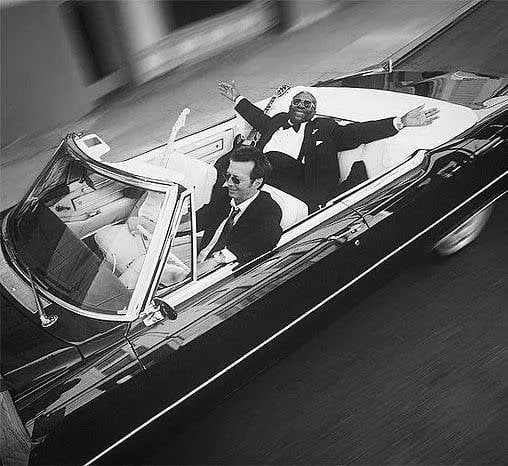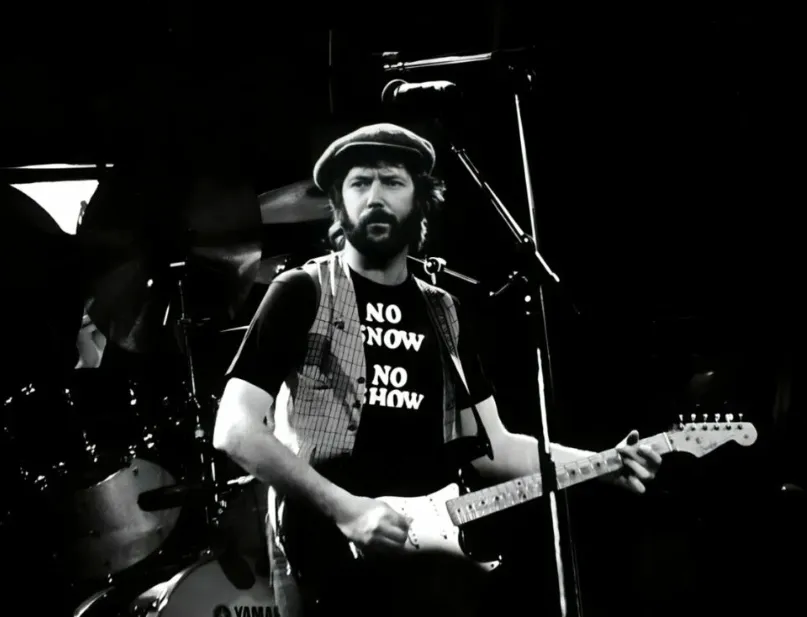1964 was a year of transformation and excitement, especially in the world of music. Amidst the swirling changes of this dynamic era, one name stood out louder than any other – The Beatles.
John Lennon, Paul McCartney, George Harrison, and Ringo Starr were more than just four musicians from Liverpool; they were pioneers, innovators, and cultural icons.
When The Beatles earned their first career Grammy Awards for 1964, winning Best Performance By A Vocal Group for A Hard Day's Night and Best New Artist, it wasn't just a milestone for them—it was a landmark moment for the entire music industry.
Prelude to Global Domination

The early 1960s were a formative time for The Beatles, with their unique blend of rock and roll, skiffle, and pop quickly gaining them fame in the UK.
By 1964, they had begun to make significant inroads into the American market, particularly with their appearances on The Ed Sullivan Show, which helped solidify their popularity across the Atlantic.
But it was their masterful album, A Hard Day's Night, that truly signaled their arrival on the world stage.
Released in July 1964, A Hard Day's Night was more than an album; it was a phenomenon.
The album served as the soundtrack to their film of the same name, which added an additional layer of cultural significance to its musical achievements.
Each song on the album demonstrated their diverse array of talents, from the catchy, upbeat rhythms to the deep, meaningful lyrics.
The Grammy nomination and subsequent win for Best Performance By A Vocal Group validated what countless fans already knew: The Beatles were something special.
Vocal Harmony and Innovation

The Grammy award for Best Performance By A Vocal Group was primarily a recognition of The Beatles' exceptional harmony and vocal quality.
But to focus solely on their harmonious voices would be simplistic. Their true talent lay in their ability to convey a wide range of emotions through their vocals.
The title track, "A Hard Day's Night," is a perfect example of their vocal prowess. The urgency and exhilaration in John Lennon’s and Paul McCartney’s voices perfectly capture the themes of the song, making it instantly relatable and thoroughly enjoyable.
Other songs from the album, like "If I Fell" and "And I Love Her," showcased their ability to handle more sentimental themes with delicate and intricate harmonies.
Their performance displayed a blend of technical skill and emotional depth that was rare for pop groups of the era. It was this combination that undoubtedly won over the Grammy voters and critics alike.
Pioneering Songwriting

A huge part of The Beatles' allure was their innovation in songwriting, particularly from the renowned partnership of Lennon and McCartney.
Their ability to craft memorable, yet complex lyrics and compositions set them apart from their contemporaries.
Songs like "Can't Buy Me Love" feature infectious melodies and lyrics that explore universal themes in fresh, engaging ways.
Even amid the throes of Beatlemania, The Beatles managed to produce work that was not only popular but also critically acclaimed.
Their songwriting techniques broke new ground for pop music. Instead of sticking to the conventional verse-chorus structure, they experimented with various forms and arrangements.
They utilized unconventional chord progressions, unique time signatures, and rich, layered instrumentation.
This inventive approach did not go unnoticed by the Grammy committee, who honored them with the accolade of Best New Artist—a testament to their groundbreaking contributions to the music industry.
Beatlemania and Cultural Phenomenon

Winning the award for Best New Artist was almost inevitable given the impact The Beatles had on the world by 1964.
Beatlemania had swept across the globe, something more than mere fanfare; it was a cultural revolution.
Their style, their haircuts, their accents, and even their idiosyncratic banter captivated the public’s imagination.
They weren’t just musicians; they were cultural icons who influenced fashion, societal norms, and even attitudes toward youth culture.
The Grammy win for Best New Artist was an acknowledgment of their rapid rise and widespread influence.
Their arrival on the American scene had been so explosive that it changed the course of popular music almost overnight.
Numerous British bands followed in their footsteps, in what became known as the "British Invasion," fundamentally reshaping the American and global music landscape.
A Vindication of Rock 'n Roll
The mid-60s was a transitional period for rock 'n roll. While it was immensely popular among younger audiences, it often struggled to gain the recognition it deserved from older, more conservative critics who viewed it as a fleeting trend.
The Beatles' Grammy wins played a crucial role in shifting this perception. They helped to legitimize rock 'n roll as a serious art form worthy of critical acclaim.
The Grammys' acknowledgment of their talent and innovation provided a form of validation that opened doors for many other rock musicians to be taken seriously.
Evolution and Experimentation
Anyone familiar with The Beatles knows that their greatest works were yet to come post-1964. Winning these Grammy Awards provided them not just with recognition but artistic freedom.
Encouraged by the industry’s acknowledgment of their talent, The Beatles ventured into new and experimental territories.
Albums like Revolver, Sgt. Pepper's Lonely Hearts Club Band, and The White Album expanded their musical boundaries and solidified their status as avant-garde artists.
Songs from these later albums revealed more about their creative intellect, comprising experimental sounds, classic Indian instruments, and even avant-garde techniques.
This evolving complexity and profundity in their music can trace part of its freedom and validation back to their early Grammy wins, which proved that the world was ready for their revolutionary approach to music.
Social Impact and Legacy
The significance of The Beatles extended beyond just music. The 1960s were marked by social upheaval, with movements advocating for civil rights, gender equality, and peace.
The Beatles' themes often resonated with these movements. Songs like "All You Need Is Love" and "Revolution" became anthems for those fighting for a better, more equitable world.
Their ability to tap into the zeitgeist and advocate for social change through music further endeared them to a generation hungry for progress.
Decades after their first Grammy wins, The Beatles' influence still permeates the music world. Contemporary artists across genres—from rock to hip-hop to electronic—cite The Beatles as a major influence.
Their songs are covered by performers of all ages, their albums are studied by music students, and their innovative techniques are standard practice in modern music production.
The Grammys' Influence
The Grammy wins for Best Performance By A Vocal Group and Best New Artist in 1964 were not just accolades; they were milestones that marked the start of an illustrious journey for The Beatles.
These awards validated their immense talent, encouraged them to push musical boundaries, and solidified their place in music history.
As we look back, it’s clear that The Beatles' initial Grammy success was only a prelude to their spectacular, enduring legacy.
The Beatles’ first Grammy Awards in 1964 were more than just a recognition of their success; they were a defining moment in the music world.
The acknowledgment of their talent and innovation at such a prestigious platform set the stage for an illustrious career that would forever change the face of music.
The Beatles were not just a band; they were a revolution, and their Grammy wins were the first innings of a game that continues to captivate, inspire, and transform the world of music.



